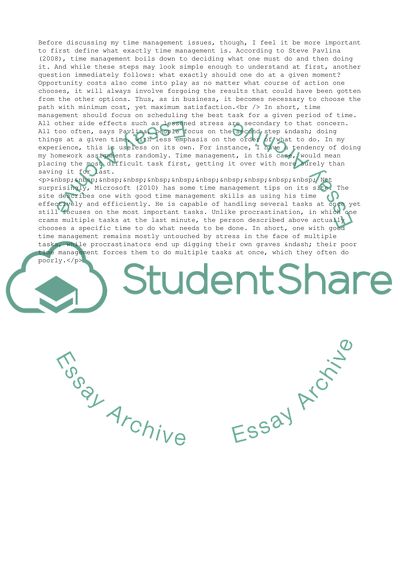Cite this document
(Improving Your Time Management Essay Example | Topics and Well Written Essays - 2000 words, n.d.)
Improving Your Time Management Essay Example | Topics and Well Written Essays - 2000 words. Retrieved from https://studentshare.org/management/1566389-personal-development-plan-part-2
Improving Your Time Management Essay Example | Topics and Well Written Essays - 2000 words. Retrieved from https://studentshare.org/management/1566389-personal-development-plan-part-2
(Improving Your Time Management Essay Example | Topics and Well Written Essays - 2000 Words)
Improving Your Time Management Essay Example | Topics and Well Written Essays - 2000 Words. https://studentshare.org/management/1566389-personal-development-plan-part-2.
Improving Your Time Management Essay Example | Topics and Well Written Essays - 2000 Words. https://studentshare.org/management/1566389-personal-development-plan-part-2.
“Improving Your Time Management Essay Example | Topics and Well Written Essays - 2000 Words”. https://studentshare.org/management/1566389-personal-development-plan-part-2.


